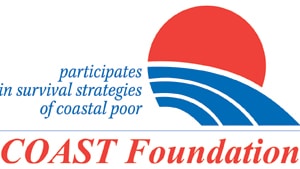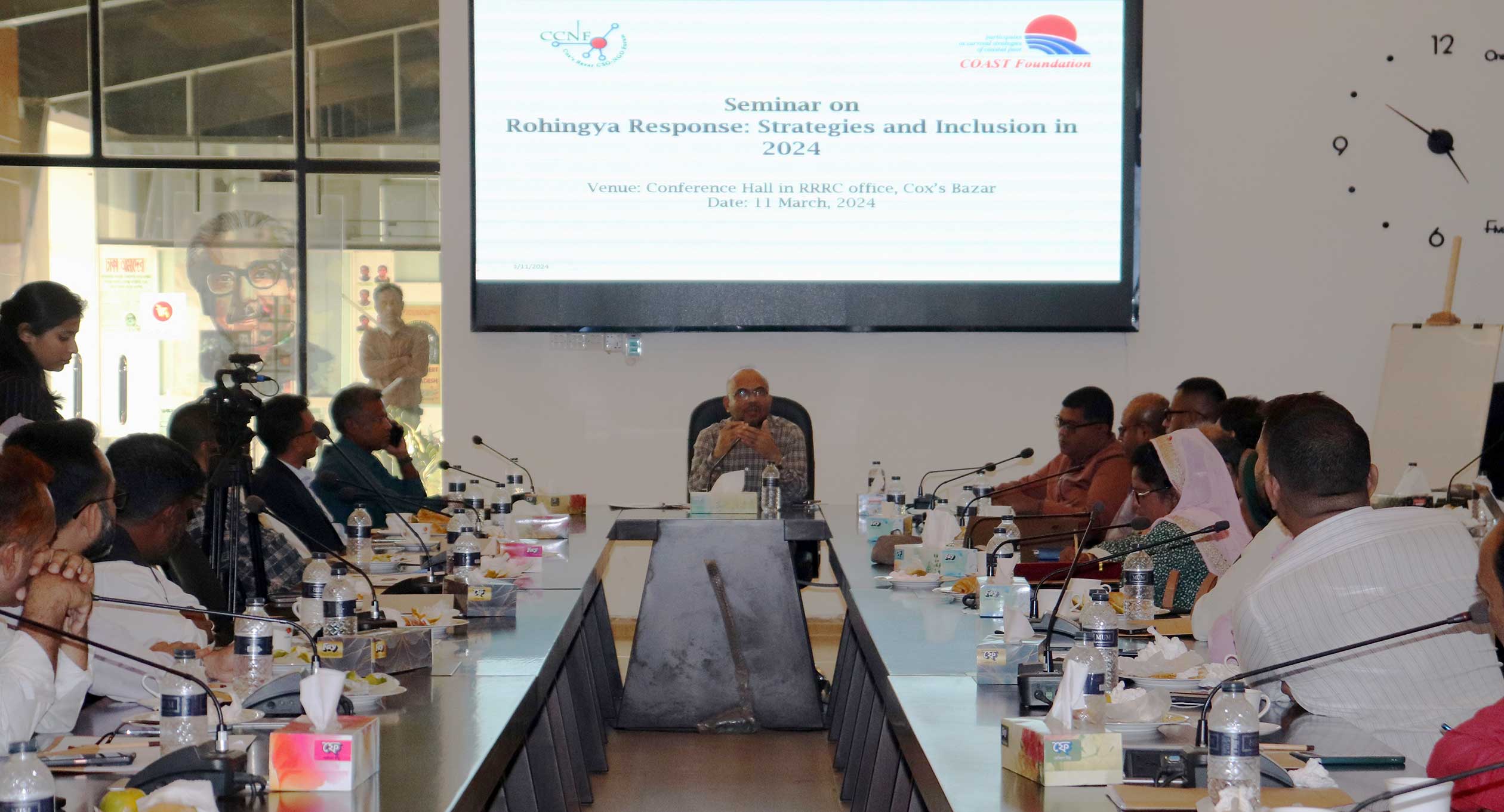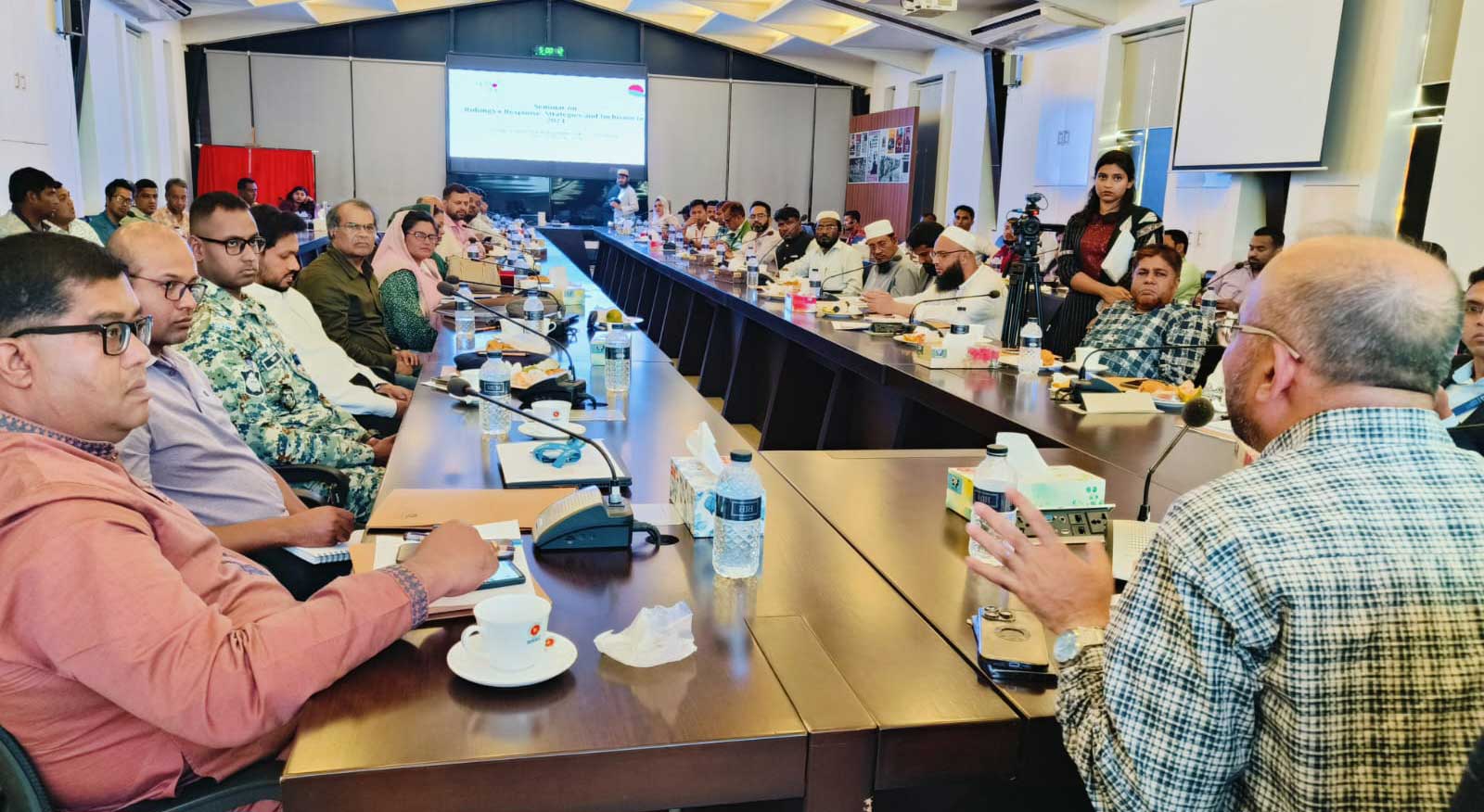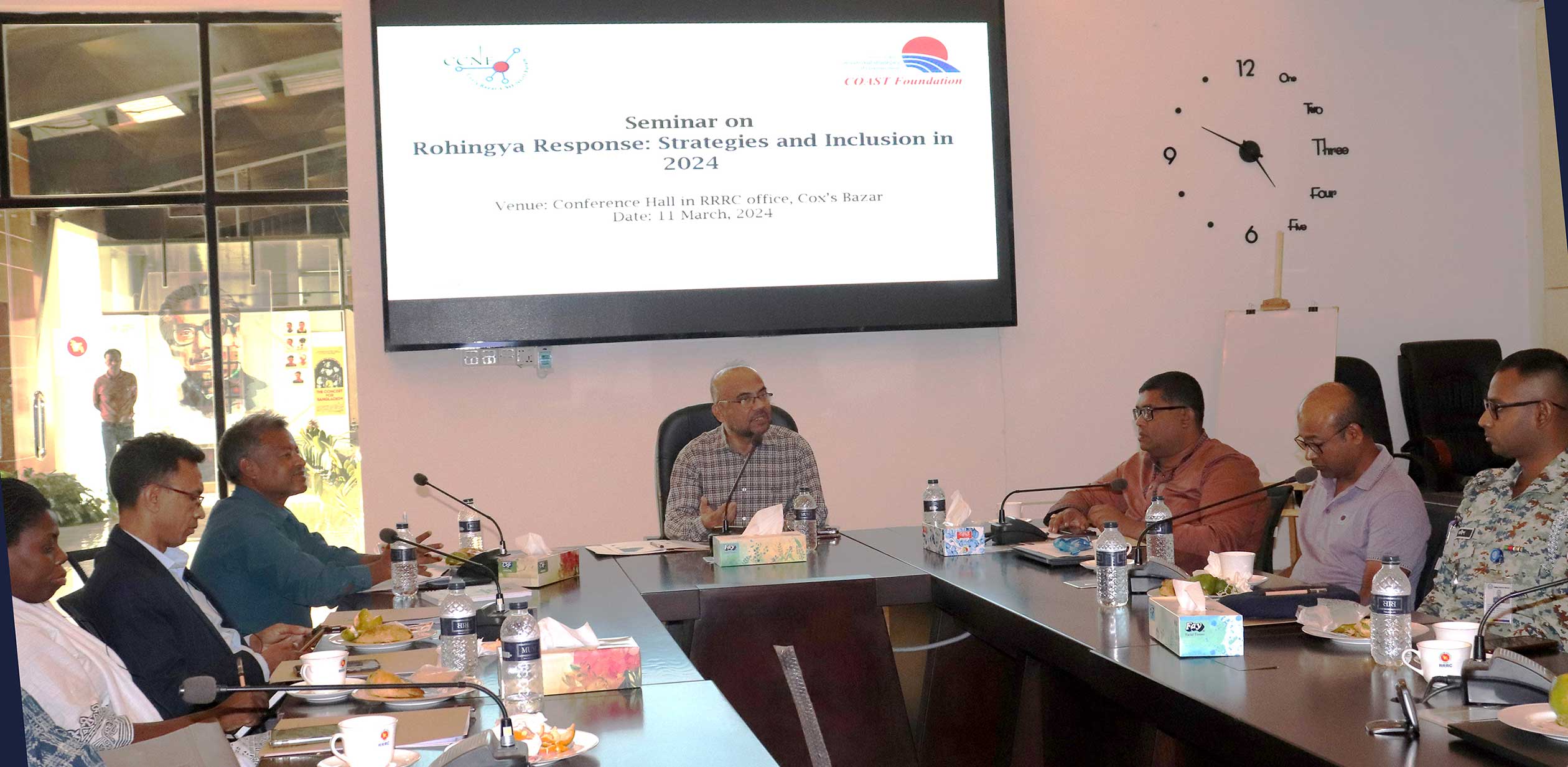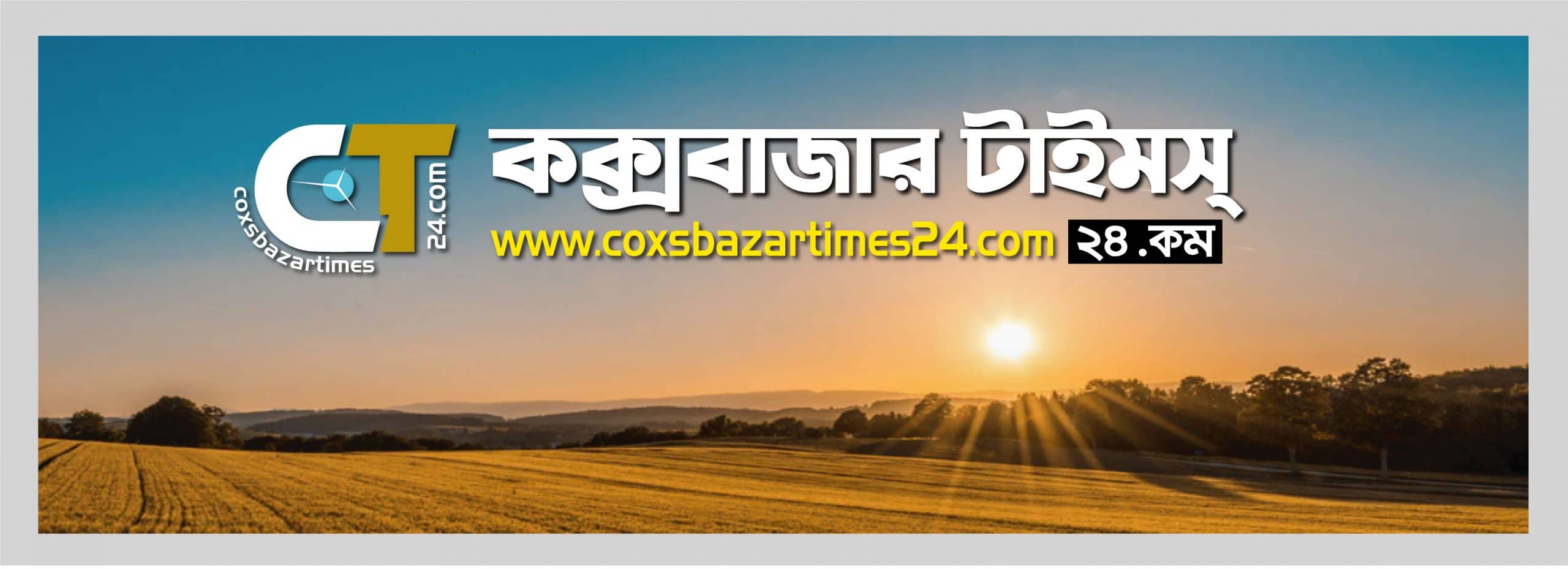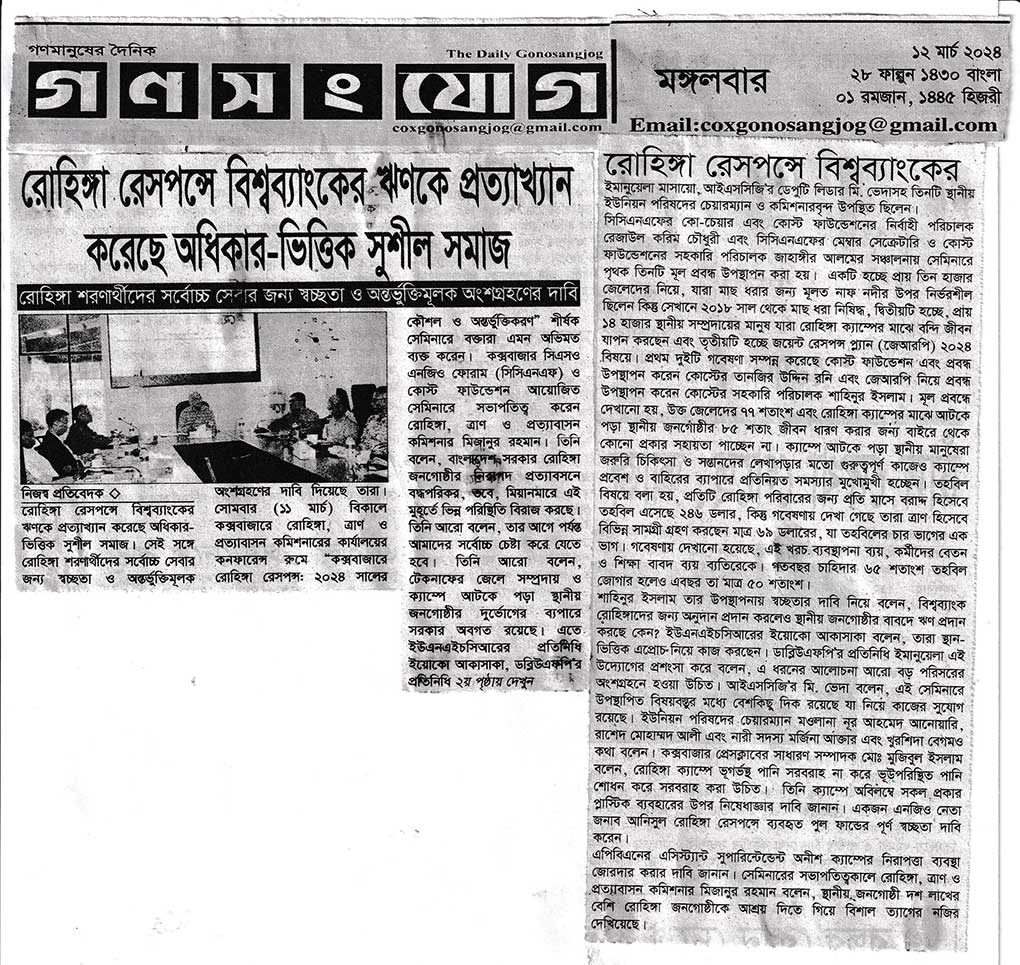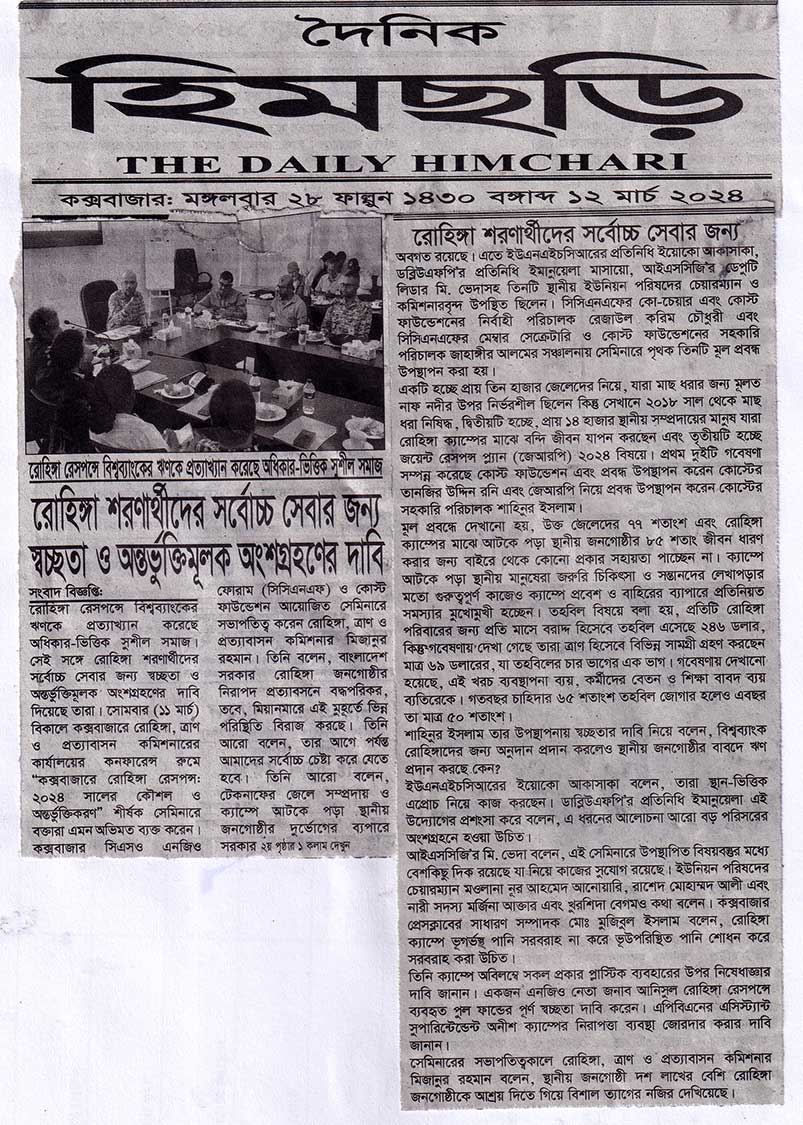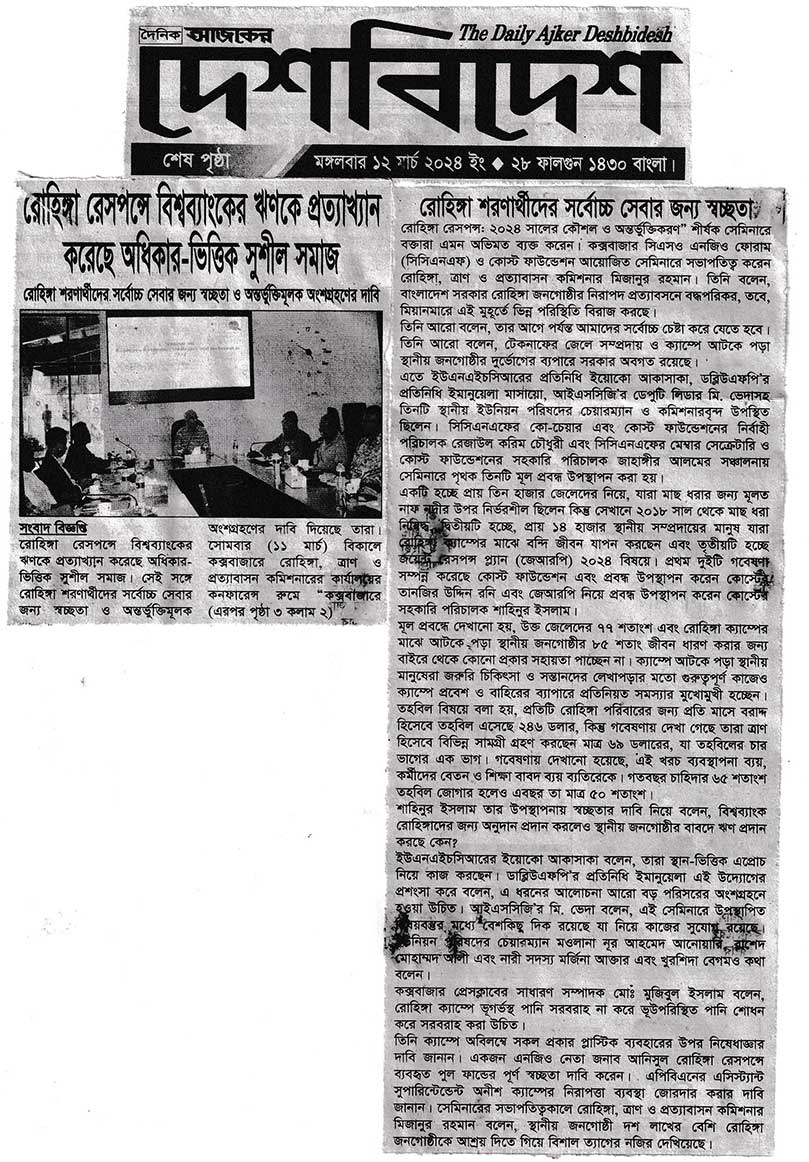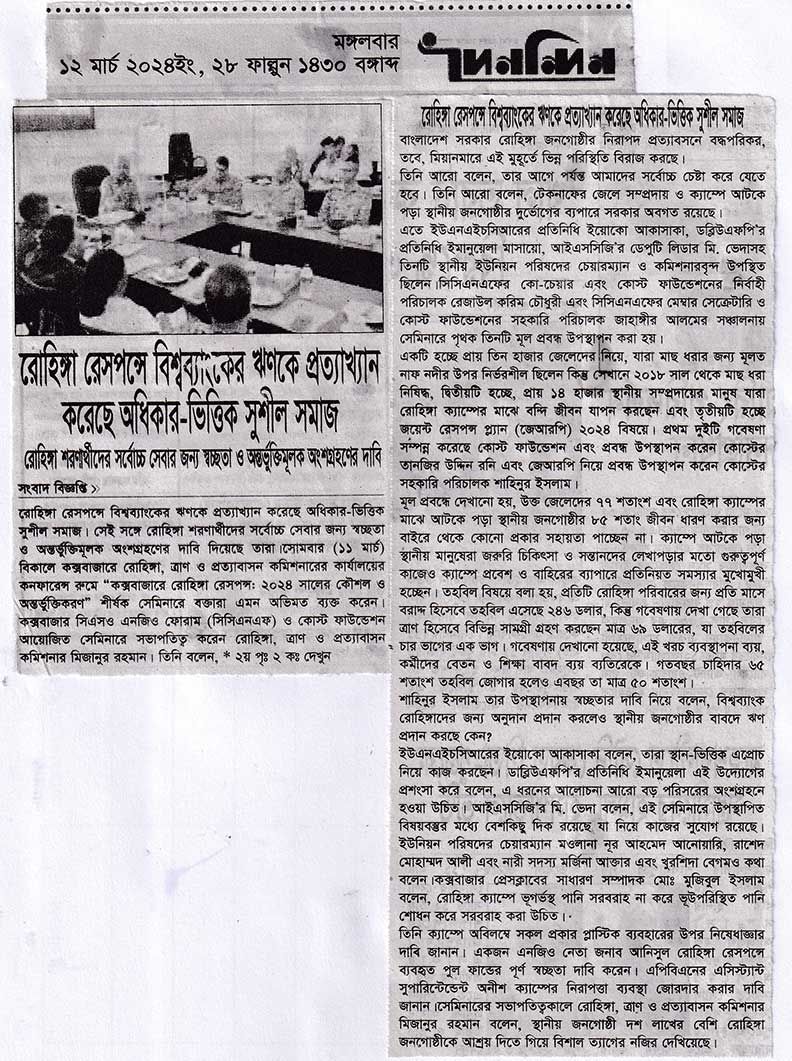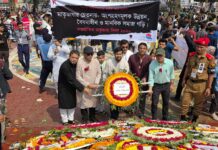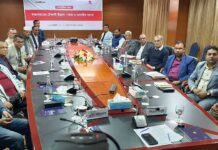Cox’s Bazar, 11th March 2024: Today, a seminar titled “Rohingya Response in Cox’s Bazar: Strategies and Inclusion in 2024” is held at the RRRC (Refugee Relief and Repatriation Commissioner) office’s conference room. CCNF (Cox’s Bazar CSO NGO Forum) and COAST Foundation organised the seminar, which was chaired by the RRRC, Mr Mizanur Rahman. UNHCR representative Ms Yoko Akasaka, WFP Representative Ms Emmanula Mashayo, ISCG Deputy Leader Mr Vedha, three local Union Parishad Chairmen and several Union Parishad Members have participated in the seminar. The seminar was moderated by Zahangir Alam, Member Secretary of CCNF and Assistant Director of COAST and Rezaul Karim Chowdhury, the Co-Chair of CCNF and Executive Director of COAST.
Three keynotes are presented in the seminar; the first is on 3000 fishermen dependent on fishing at Naf River, but it has been banned since 2018, and the second is on the 14,000 host community people encircled within the camps. These two studies are conducted by the COAST Foundation and presented by Tanjir Uddin Roni, Head MEAL of COAST. Mr Shahinur Islam, the Assistant Director of COAST, presented on JRP (Joint Response Planning) 2024.
The keynote presentations showed that 77% of the fishermen and 85% of the host community encircled in the camps are not getting any support for their living. These host community members face difficulties in going in and out of the camps, even in health emergencies and their children’s education. Regarding the funding, for each of the Rohingya families, per month, aid is received around $246, while the study found materials of around $69, i.e., one-fourth of the amount, is spent in the field. The survey said the cost excludes management, education, and staff salaries. So far, the response has raised an average of 65% of the fund. Last year, it was 50%. Shahinur Islam has also demanded clarity on whether the government is taking loans for host communities from the World Bank while they are giving grants to Rohingya refugees.
Ms. Yoko of UNHCR said that they are working on an area-based approach. Ms Emanuela of WFP praised the effort and said that such a discourse should be discussed with wider participation of agencies. Mr Vedha of ISCG (Inter-Sectoral Coordination Group) said there are opportunities for different outcomes of the studies presented at this seminar. Union Parishad Chairmen Moulana Nur Ahmed Anwari and Rashed Mohammed Ali and Female Union Parishad Members Marzina Akhter and Khurshida Begum also spoke in the seminar.
Mr Mujibul Islam, Secretary of the Cox’s Bazar Press Club, urged not to use underground water rather than surface water treatment to supply drinking water in the camps. He also urged the immediate ban on the use of plastics in the camps. Mr Anisul, an NGO leader, demands full transparency of the pooled fund process in the Rohingya response. Mr Anish, Assistant Superintendent of Police of APBN, drew attention to the improvement of the security infrastructure of the refugee camps. Mr Mizanur Rahman, RRRC, who also Chaired the session, said that the host community is making a great sacrifice in hosting 1.1 million Rohingya refugees. He added that the government is determined for the repatriation, but there are different situations in Myanmar now. Until then, we, the nation, have to show our best effort toward refugees. The government is aware of the plight of the fisherman community in Teknaf and the host community living within the camps.
Download related paper [Bangla Press] [English Press]
- Presentation on Unraveling the impacts of the fishing ban at the Naf River [Download Presentation]
- Presentation on welcome to discussion on Joint Response Plan 2024 [Presentation Download]
- RECLAIMING RIGHTS A study on the impacts of the fishing ban on the Naf River and its consequences in Teknaf, Cox’s Bazar. [Summary Report] [Full Report]
- “The Excluded— A Rapid Study on the Host Community Confined inside the Rohingya Refugee Camps in Cox’s Bazar, Bangladesh.” [English] [Bangla] [Summary Report] [Presentation]
Photos
Newspaper


